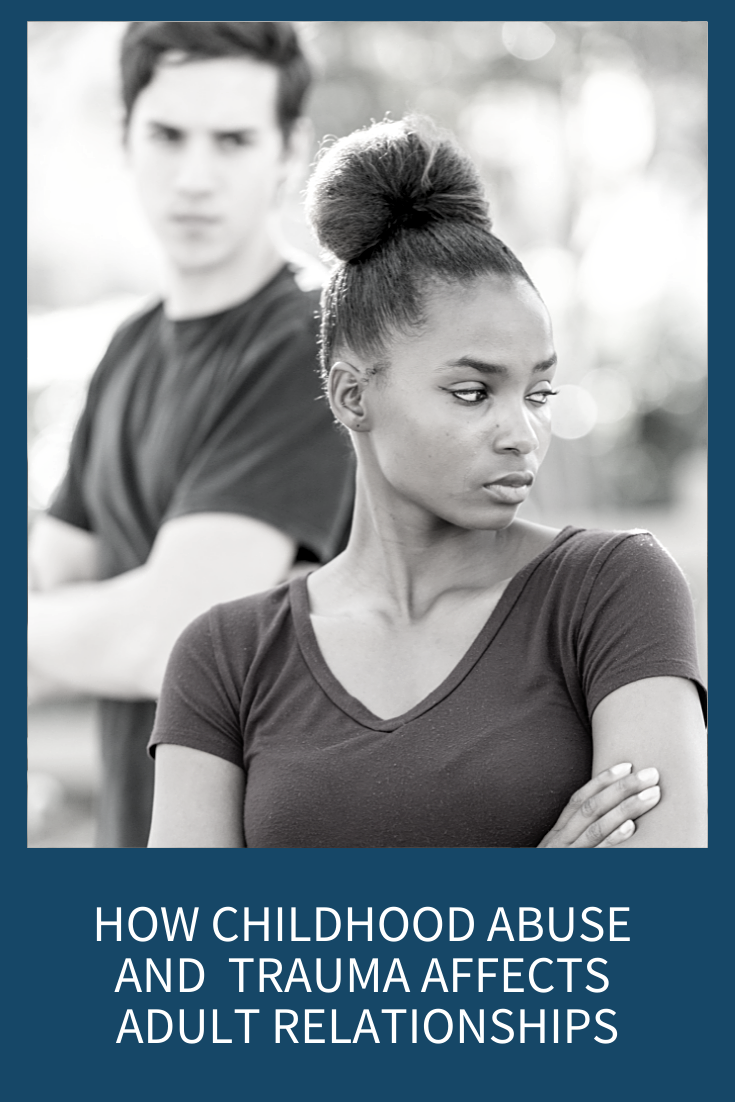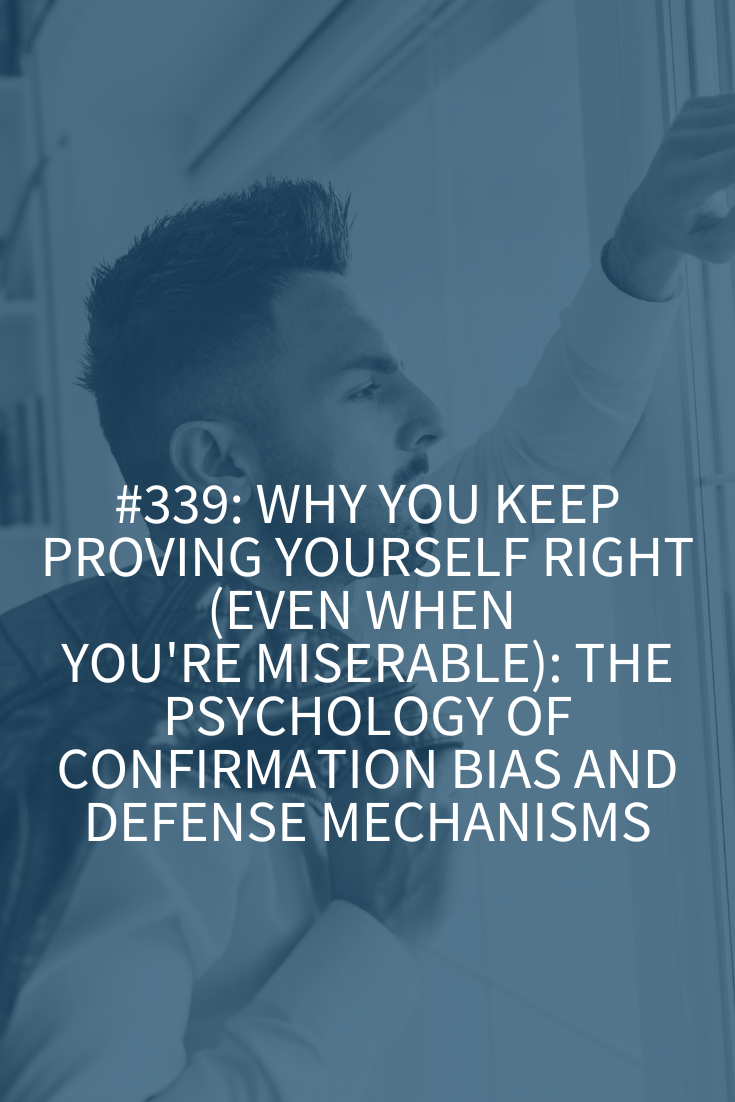
Everything from your sex life, to troubles with your boss at work, to your ability to trust and be open with your partner can be affected by abuse or trauma from your childhood. The good news is that the challenges you face today don’t have to be permanent! Today I’m breaking down what childhood abuse includes (you’d be amazed how many people I’ve worked with don’t even realize that what happened to them as a kid is actually some type of abuse or trauma), how childhood trauma affects relationships, and as always, some resources to get the help you need.
10-minute read
If you think today’s topic applies to you or someone you love, this is not something to read to on the fly. There’s a lot of information here and just reading it could trigger you in some way. So, carve out some calm time when you’re feeling relatively fresh, make sure you’re hydrated and fed and take a moment to set intention and check in with yourself before listening.
What Qualifies as Childhood Abuse or Trauma?
This is usually problem number one. I’ve met with so many clients over the years who are struggling in their lives and relationships now and don’t realize that much of it stems from things they experienced as kids that they didn’t realize were affecting them so strongly.
When we talk about childhood abuse or trauma, most people understand that things like incest, sexual abuse and physical violence certainly “count.” What they often don’t realize is that there’s a lot of gray area in those terms so you might have been sexually abused and not realized that’s what that was, or you suffered from emotional neglect as a kid and didn’t realize that meant that you’d still be dealing with it today.
Childhood trauma, in the big picture, refers to any significantly distressing experiences you may have had as a kid and that covers a lot of ground.
Examples of childhood trauma include:
- Physical violence
- Emotional abuse
- Sexual abuse: inappropriate fondling; sex, but also boundary violations like an adult getting naked in front of you with an erection or not being able to use the bathroom alone
- Natural disasters
- Loss of a loved one
- Abandonment
- Neglect
- Any other event where you felt scared, helpless, horrified, or overwhelmed
Because we all experience life in different ways, what may be traumatic for you may not be for someone else. What really matters is how you perceived the situation and how you feel. Complex trauma, which is repeated exposure to distressing events or experiences over a period of time, can be particularly pervasive and difficult to treat without some clarity and direction.
Some Facts to Know About Childhood Abuse and Trauma:
- Men and women suffer similarly as adults from childhood abuse
- At least one in four women and one in six men in the US were sexually abused as children.
- In the United States, more than two-thirds of children have experienced some form of trauma.
- Across the globe, 1 in 8 adults have reported childhood sexual abuse, and 1 in 4 have reported physical abuse.
Why childhood trauma affects relationships
This is an extremely complex issue so there are many reasons why childhood trauma affects your relationships, but four main ones stand out:
Reason No. 1: Attachment Styles
We form our attachment styles in childhood which, the research shows, absolutely creates the ways we attach in our adult relationships.
Reason No. 2: Communication Styles
Another way childhood trauma affects relationships is the way you communicate as an adult since you usually have an adult communication style based on what was modeled for you as a kid.
For example, if you grew up in a home where conversations or any disagreement devolved into a yelling match, you probably do the exact same thing with your partner or friends now. Consciously or unconsciously, you think that the way to deal with conflict is to yell about it or you believe that’s the only way you’ll be heard. Or, you might be on the opposite end of the spectrum and find it hard to express your emotions or talk about your feelings or what’s important to you at all.
There are many types of communication styles but you might relate to one of these three broad types:
- Passive: this generally involves a lot of triangulation (telling your sister you’re mad at your mom because you know your sister will then tell your mom how you feel so you can indirectly communicate) or denying you even have a feeling or apologizing for feeling the way you do.
- Passive-aggressive: this is when you appear passive and non-emotional or even happy about something but you then act out your anger indirectly, behind-the-scenes or in some other subtle way that’s difficult to pinpoint.
- Aggressive: This one is directly attacking, blaming, criticizing, or having an outsized response that doesn’t fit the situation.
Reason No. 3. There are physical changes in the brain
While so much attention is directed at the psychological changes that happen when there’s been childhood abuse or trauma, it’s equally important to understand that there are physical changes too.
There are some specific changes that are affect your thoughts and reactions when there’s been childhood trauma or abuse.
I’ve talked about your autonomic nervous system (ANS) before, which basically regulates all the involuntary processes of your body – the things you don’t have to think about that just automatically happen such as your heart rate, blood pressure and digestion.
There are two main branches of your ANS: the sympathetic nervous system (SNS), which you can think of as your body’s accelerator and your parasympathetic nervous system (PNS) which is your brakes.
The sympathetic is responsible for arousal, including your fight or flight response. Your SNS moves blood to the muscles for quick action, puts out adrenaline which speeds up your heart rate and increases your blood pressure.
The PNS is all about self-preservation. It focuses on digestion and healing mostly. It triggers the release of acetylcholine to put on the brakes of all that arousal, slow your heart, relax your muscles, and return your breathing to normal.
You can experience these two systems right now. Right now, take a deep breath in. When you do that, you activate your SNS. Athletes often take a few deep breaths before starting a competition because that deep breath in will give you a burst of adrenaline and speed up your heart. Now as you slowly exhale, you’ll activate your PNS which will slow your heart down. Long, slow breaths OUT help calm you down so always pay attention to your exhalation when you want to ground or calm yourself.
Our brains are built for belonging. Our brains are bult to help us function as members of a tribe. We’re part of that tribe even when we’re alone. You might be listening to music (that someone else created) or watching your favorite baseball team on TV (with your own muscles tensing as you see someone run to first base) or preparing your presentation for a meeting at work (and anticipating your coworkers’ reactions). Most of our energy is devoted to connecting to others.
Being able to feel safe with other people is probably the single most important aspect of mental health; safe connections are fundamental to meaningful and satisfying lives.
It’s not just being seen by others that makes us feel safe; we also need to feel reciprocity to feel safe with others. This is why having a pet who loves you and jumps up and down when you get home feels SO good!
When you’ve experienced abuse or trauma in childhood, your nervous system is changed. Your nervous system has an altered perception of risk and safety. Trauma researcher Stephen Porges coined the term “neuroception” to describe the capacity to evaluate relative danger and safety in your environment. To get well, you not only have to train your brain to respond appropriately to danger but, you also need to teach it to experience safety, relaxation and true reciprocity in your relationships.
According to Porges, when we feel threatened, there are basically three responses we have. First, we call out for help, support or comfort from the people around us. If that doesn’t work, our fight/flight response takes over. And if that doesn’t work, and we can’t get away or feel trapped in some way, we shut down and try to expend as little energy as possible. This is the freeze response.
Reason No. 4: Hyperarousal
Another physical change that causes behavioral changes that affect relationships is something called hyperarousal. Basically, this is an abnormally heightened state of anxiety. This means that even though the childhood threat is no longer a thing now that you’re an adult, your body responds physically as if it was still happening.
I’m not going to get into an entire episode on Post Traumatic Stress Disorder (PTSD) but hyperarousal is a symptom of it. Basically, the body is having an overreaction to the stress response. PTSD causes biological changes in the brain including dysregulation of the stress response system. This can then be triggered even by simply remembering a traumatic event.
Hyperarousal in PTSD can affect children and adults equally. Symptoms include:
- Chronic anxiety
- Overtly controlling behavior
- Difficulty concentrating
- Irritability or angry outbursts
- Hypervigilance or being constantly on guard
How childhood trauma affects relationships
Because trauma and different types of abuse affects emotional development, there are some main areas that are affected:
1. Trust
Childhood abuse and trauma come to the very core of how we trust the world, our caregivers and ourselves, so this is a huge impact area.
2. Emotional Closeness/Intimacy
This is related to trust, of course. It’s also related to what you learned as a child is acceptable, expected or even possible when it comes to true emotional closeness.
3. Sex Life
Between confusion regarding power dynamics and asserting your needs, to distrust to not knowing how to be emotionally close, having your sex life affected is often a big issue.
4. Conveying Feelings and Needs
Many people who’ve survived childhood trauma or abuse have an issue with something called alexithymia which is basically not having words for feelings or not being able to describe how they feel in a given moment. Your partner might look like they’re furious but tell you they’re fine. Alexithymics are often very busy “doing;” since they don’t have the words or emotions, they substitute action instead.
Get the help you need!
If you identify with any of today’s podcast, then I want to highly recommend therapy of some kind. I’d especially like to recommend that you work with someone trained in trauma since there are different types of therapy that are used for people recovering from childhood abuse and trauma that are more effective.
- You can locate a therapist who specializes in trauma through the International Society for Traumatic Stress Studies Find a Clinician Tool.
- Eye movement desensitization and reprocessing (EMDR) is an amazing, evidence-based tool for dealing with trauma. The goal of EMDR is to use eye movement to redirect you from traumatic memories of the past to current sensations in the present.
- There are certain types of cognitive behavioral therapy (CBT), particularly imagery rescripting, that can help with trauma reactivity and racing thoughts.
- Mindfulness can also be very beneficial since it helps you focus your attention, in a non-judgmental way, on what you’re feeling emotionally and physically in a moment instead of allowing your monkey mind to flow with erratic or stressful thoughts.
- There are helpful medications so seeing a psychiatrist can also help although medications alone aren’t going to be as effective as medications coupled with trauma therapy of some kind.
- Lastly, Emma Seppälä has done amazing work showing how breathing can alleviate PTSD symptoms. In particular SKY Breathing (Sudarshan kriya yoga) is a type of cyclical controlled breathing practice used to help a multitude of mental health issues. It’s taught by the nonprofit Art of Living Foundation.
- If you want to read more, the seminal book on this topic is The Body Keeps the Score by Bessel Van Der Kolk, MD
Resources
How Attached Are You in Your Relationship?
What Anxiety Really Is and How to Deal with It
Your People Pleasing Might Be a Trauma Response
International Society for Traumatic Stress Studies Find a Clinician Tool
How to Get Out of Negative Thinking
SKY Breath Meditation, Art of Living Foundation
Bessel van der Kolk, M.D., The Body Keeps the Score: Brain, Mind, and Body in the Healing of Trauma






